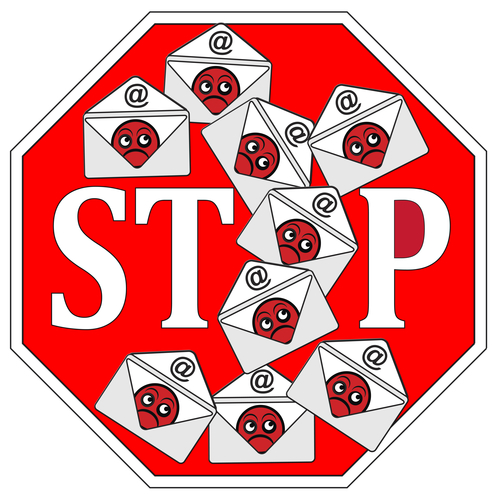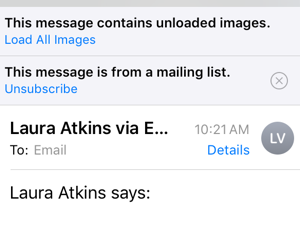Jane! Stop this crazy thing!
- laura
- October 18, 2018
- Best practices
One of the consequences of moving to Ireland is I’m unsubscribing from most commercial mail, including some lists I’ve been on for a decade or more. Sadly, many of the companies don’t ship to Ireland, or their shipping costs are prohibitively expensive. Even if I wanted to purchase from them, I couldn’t.

This process has made me realise how horrible many company’s unsubscribe processes are. Look, I get it, having people leave your list is no fun. Losing subscribers is not what we’re in this for. But, sometimes, sometimes you just have to let them go. But there are senders out there that continue to mail me after I have unsubscribed.
In one case, every time I unsubscribe I get a note “you’ve been unsubscribed from company <list name>.” There is no option available for me to unsubscribe from all company publications. At this point I’ve submitted at least 3 separate unsubscribe requests, and the company is still mailing me. This is, in fact, a CAN SPAM violation.
In both the original law and the rulemaking from the FTC opt out requests are to the “sender” of the commercial email message. We can rules lawyer about how different divisions of a company may be different senders, or how different messages are coming from different people inside the company. In this case, though, the email address in the From: line of the message is identical. They aren’t different “senders” they’re the exact same sender.
The DMA fought long and hard to make sure CAN SPAM was an opt-out law. They argued that every company should have the opportunity to try and sell consumers something. “We call it the ‘one bite at the apple’ rule,” [Patricia Faley of the Direct Marketing Association] says. “Give me one chance to show you what I have to offer you, and if you don’t like it, then I won’t contact you again.”(Congress has hard time stomaching e-mail spam). Unfortunately, all too many companies forget the won’t contact you again piece.
In fact, just yesterday I received email from the DMA of Northern California that was in blatant violation of their one-bite rule and CAN SPAM. They got the address from me because I spoke on a panel at a meeting back in 2002 or 2003. I never actually opted in, but as part of the event they required every attendee to give them a business card. After I got the first message I unsubscribed. Yes, the unsubscribe request was more than 15 years ago. That doesn’t make it invalid.
Worse for the DMA, the address is now a spamtrap. Knowing who was at the meeting with me, that wasn’t the only address turned into a spamtrap.
If someone goes through the trouble to opt out of your mail, listen to them. Respect their no. Senders who don’t create a preference center need to accept that when a recipient opts out of one email, then the recipient has opted out of all emails. Sure, if you have a preference center, they can pick and choose and maybe they will want to stay on the recipe list without staying on the sales list. But lacking that facility unsubscribe means unsubscribe from everything.
Likewise, opt-outs don’t expire! If someone says to stop mailing them and don’t contact them again, you stop mailing them and don’t contact them again. The DMA should know better. They’re supposed to be industry leaders in best practices. Unfortunately, they failed.
Email only works because senders respect recipients. Both of these examples show marketers that haven’t bothered to actually consider their recipients. You can’t respect someone you haven’t even thought about.



